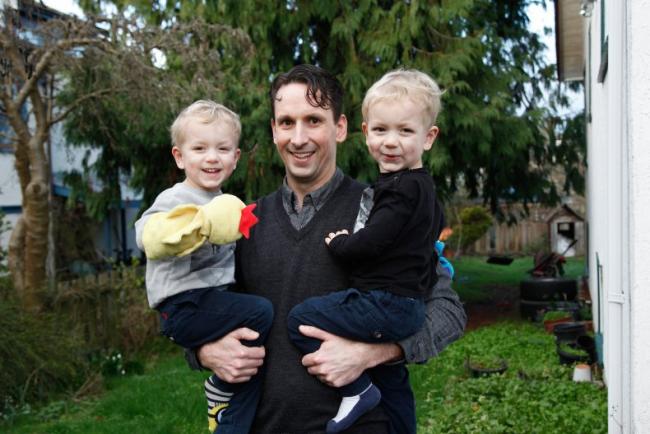Articles Menu

August 20th 2019
The words may not have been explicit, but oilpatch contractor Matthew Linnitt says he read between the lines: lie on official documents about an incident that could have killed him, or someone would be fired.
The tacit threat, he alleges, was handed down by his supervisor at Canadian Natural Resources Limited (CNRL) after a close call with hydrogen sulfide on a northwestern Alberta well site on May 2, 2016.
Hydrogen sulfide, also known as H2S or sour gas, is a toxic substance that can be fatal in high concentrations, and is sometimes leaked from the wellheads, pump jacks, pipes, tanks and flare stacks of oilfields.
At the time, Linnitt considered himself lucky to have escaped with his life — he was working alone on a remote site in Karr Creek, Alta., when a geyser of fluids and poisonous sour gas erupted from its depths. A valve hadn’t been properly shut down.
He searched for the site’s emergency breathing equipment, only to find that the workers who had improperly sealed the valve had also taken the air packs off site. Without cell service, Linnitt ran far away from the fumes and stayed away until his air monitor told him the sour gas levels no longer posed a threat.
He later faced a difficult choice: he could report what happened and risk being fired for revealing that CNRL had violated safety protocols, or he could lie to save his job.
Linnitt said he decided to lie in his incident report to the company, writing that he used the site’s emergency breathing equipment after the spill.
He is no longer willing to live with that lie.
“The reality was that I could have died where that incident occurred, and to sweep something like that under the rug… the next guy was just going to die,” he explained in an interview from Victoria.
Linnitt now lives in Cumberland, B.C., where he works in trucking.
In that incident report, obtained by National Observer and Global News, Linnitt was applauded by his CNRL supervisor, a foreman, for “excellent safety practice” for using the air packs. But a conversation Linnitt secretly recorded after the paperwork was filed reveals the foreman knew the emergency air packs weren’t on site.
A foreman typically oversees extraction operations, and in this case, filled out parts of the incident report alongside Linnitt.
CNRL declined to comment on this investigation in an emailed statement, and did not respond to multiple requests for interviews.
According to Linnitt, lying on official paperwork to the benefit of industry employers is a transgression rarely caught, but part of a “systemic problem” of oilpatch rule-breaking, in which “good people are incentivized to lie” to keep their jobs.
He’s not alone: in the course of this investigation, National Observer and Global News spoke with five current and former oil and gas workers in Alberta and Saskatchewan.
All admitted to having lied or omitted facts on official documents about health and safety incidents, or to witnessing someone else do it in order to avoid being fired.
Despite claims made by the five current and former workers, regulators in Alberta and Saskatchewan confirmed in emailed comments that no oil company has ever been charged or penalized for deliberately filing false or misleading information on official documents. In Alberta, the regulator also notes that proper reporting is a “pillar” of the law, prompting it to consider prosecutions if false reporting is discovered.
The Canadian Association of Petroleum Producers (CAPP), which represents the oil and gas industry nationwide, declined to comment on this investigation, citing lack of evidence to suggest the practice of filing misleading reports is widespread.
That the workers say the dishonesty occurs under the table is, according to industry observers, not only an indication that the industry’s oversight regime may be permitting companies to endanger workers, but also part of an oilpatch culture of silence that favours profit over employees.
. . . . . . . .
[more at link. ]
[ Editor: This is a longer article - read the complete article at the link here.]
[Top photo: Matthew Linnitt says he's grateful his livelihood no longer depends on oil and gas. He no longer fears reprisal against his family. Photo by Jennifer Osborne]